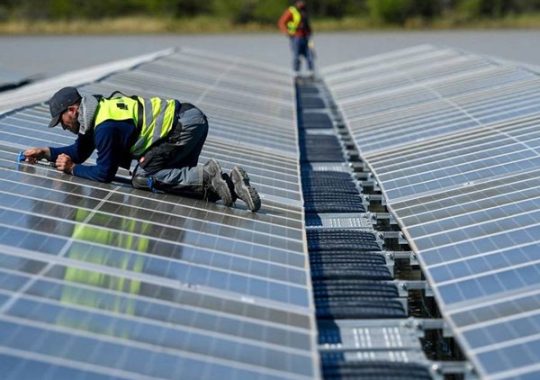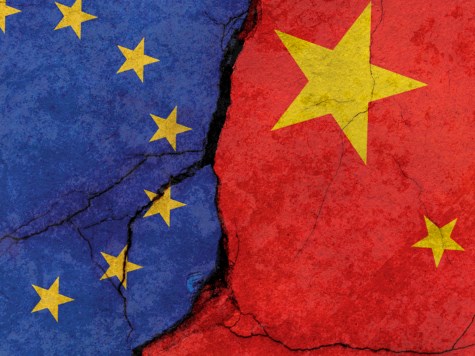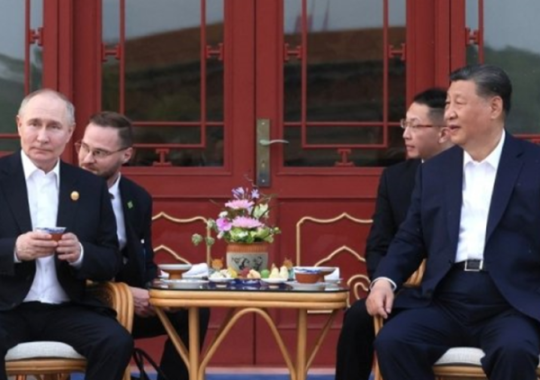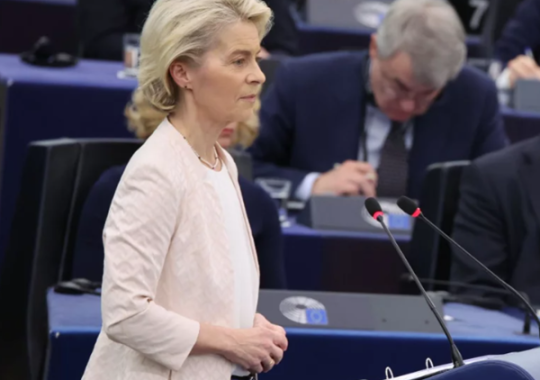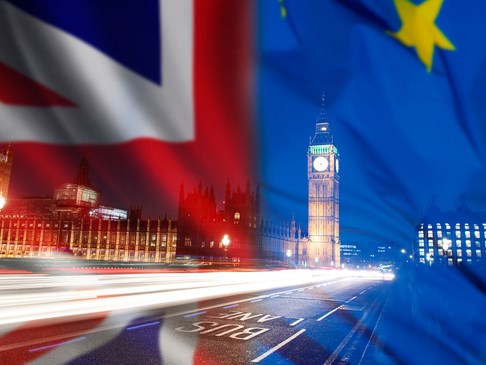The re-election of Ursula von der Leyen as President of the European Commission on the 18th of July represented a significant moment for the political equilibrium of the current European Parliament. The vote was conducted via a secret paper ballot. 401 out of 720 MEPs supported her second mandate as President, while 284 opposed it and 22 submitted blank or invalid ballots. Beyond the numbers, which, however, resulted far better than the minuscule 9 votes margin of her first election, the support of the Greens to the formation of a de facto “grand coalition” with the EPP, the S&D and the Liberals appears as the most important political takeaway of the aftermath of the European elections to date. Moreover, the effectiveness of the so-called “cordon sanitaire”, an agreement among mainstream parties to exclude the far-right groups, Patriots for Europe and Europe of Sovereign Nations, from holding prominent positions in the Parliament, equally appears as an important political takeaway. Nonetheless, it should be noted that the ECR Group, notably led by Italy’s PM Georgia Meloni, was able to gain some relevant institutional roles for its members.
From an institutional perspective, the attention has now shifted to the formation of the new College of Commissioners, and more specifically, to which candidates EU member states will propose, beyond Antonio Costa and Kaya Kallas who have already been designated respectively as President of the European Council and High Representative for Common Foreign and Security Policy. Indeed, EU member states will have until the end of August to propose their nominees, while the European Parliament should end the process of grilling individual candidates and approve the new European Commission as a whole between September and October, with the aim of having the new EU executive body in office by the beginning of November. However, from a broader policy perspective, the political guidelines of the next legislative mandate have already been put forward by the re-elected President of the Commission both in her paper published ahead of the European Parliament vote and during her speech before the members of the Parliament and in the subsequent question and answer session with MEPs. Indeed, in these two instances, Ursula von der Leyen touched upon several crucial questions for the future of Europe. However, the war in Ukraine and its repercussions on the domain of defence, the questions of reducing external dependencies on raw materials and of fostering the competitiveness of the European economy through a ‘Clean Industrial Deal’ remain, with the possible evolutions of the relationship with China, the most important questions that Europe will have to engage in during the next legislative term.
“Now that the quinquennial electoral tussle for seats in the European Parliament is over, European politicians must shift quickly from competing against one another to helping Europe compete globally”, Jacob Hafele wrote in a Project Syndicate Commentary after the official announcement of the result of the European election, but before the re-election of Ursula von der Leyen as President of the European Commission. The author also added that “to boost Europe’s industrial competitiveness under a renewed mandate, she will need to appeal across national borders and political boundaries”.
Whereas, with the exact same timing, an ECFR Policy Brief argued that the new European Commission should aim to enhance Europe’s ability to produce green technologies. The authors also remarked that while EU member states support this primary goal, they disagree on the methods and the importance of the initiative. Indeed, they highlighted that some countries advocate for a robust green industrial policy, while others prioritise reducing the costs of green technology and thus believe that importing some technologies from outside Europe is necessary for the time being. The analysis concluded that the EU cannot afford this variety of strategies and must operate as a unified bloc to achieve economies of scale.
On the question of Europe’s defence sector and the industrial and financial policies which should accompany a reinforcement of the EU capacity, a CEPS Commentary noted that, in the past two years, the conflict in Ukraine has accelerated and increased the efforts to strengthen the European defence sector and bolster Europe’s capacity to protect itself and aid Ukraine’s defence. The analysis also highlighted that, in addition to improving spending efficiency, collaborating on expenditures and involving private investment, the next step for EU defence funding should be the issuance of joint debt. This approach, the authors explain, would offer significant political motivation for EU member states to unify and streamline the EU defence market.
However, both Europe’s defence and competitiveness-related matters will have to take into account the results of the US election and the impact that they will have on a global stage. For this reason, as well, a SWP Research Paper analysed America’s foreign economic policy in depth. The author, however, remarked that, within the current context, the European Commission has appropriately begun efforts to address the EU’s vulnerabilities and enhance the coordination of external economic policy decisions, beyond trade policy. She also added that regardless of the results of the 2024 US presidential election, and to lessen reliance on an authoritarian China, the European Commission and EU member states should collaborate with businesses to advance strategies for reducing risks and managing critical technologies. The author also stated that the recently released economic security measures by the EU executive body represent a significant move in this direction.
In terms of global competitiveness, the main underpinning geoeconomic question has been the relationship with China. The question of de-risking and overcapacity of the Chinese economy have echoed in both side of the Atlantic. Nevertheless, Europe’s strategic stance will be also determined by the sum of the EU member states national approaches. Accordingly, an Ifri External Publication engaged with the China question by highlighting that “the concept of ‘de-risking’ has become a significant focus for the European Union in managing its relations with China since first proposed by European Commission President Ursula von der Leyen in March 2023. However, the interpretation and policy responses to de-risking vary across Europe, reflecting diverse national perspectives”.
Whereas, from a strictly geopolitical perspective, the Sino-Russian alliance has been the subject of several studies. In line with this trend, a Clingendael Publication investigated the consequences of Moscow’s increased relationship with China as well as whether Russia should be considered a ‘junior partner’. The author emphasised that while the Kremlin and its Chinese counterpart, Zhongnanhai, have referred to this new reality within the framework of a strategic partnership, which mere weeks before the invasion was announced to have ‘no limits’, outside of Russia and China analysts have used less flattering descriptors of Sino-Russian relations that emphasize the substantial asymmetries between the two parties.
On a similar note and, most probably, being conscious that both the current geopolitical tension in the Indo-Pacific area and the possible future friction in the Artic also revolve around the question of international law and military predominance at sea, a Finabel Publication analysed the application of the Law of the Sea to the EU legal system. The author considered both the International and European legal frameworks regulating maritime areas and their implications for European Defence.
As far as the question of Europe’s external projection is concerned, an ECDPM Commentary tackled the question of a second von der Leyen mandate and the shifting approach to EU international partnerships. The author noted that Russia was a central theme throughout the speech of the re-elected President of the European Commission. The author also highlighted that Ursula von der Leyen announced a new agenda and a Commissioner for the Mediterranean. Further, it is noted that her political guidelines for 2024-2029 mention international partnerships with other regions under the term ‘economic foreign policy,’ prominently featuring the Global Gateway connectivity initiative.
Finally, EU-UK relations have become again a matter of discussion after the elections which took place on the 4th of July. A CER Insight on a post-election agenda and the relationship with the EU underscored that Britain’s next government needs a coherent strategy towards the EU, ranging from trade and regulation to energy, foreign policy and defence. The authors also stated that Whoever wins the election [and it seems almost certain to be Labour] will have to think about reshaping the UK’s relationship with the EU, in the interests of the UK’s prosperity and security. Four years after Brexit, the EU is still the UK’s largest trading partner, and Putin’s invasion of Ukraine has highlighted that Euro-Atlantic security remains critical for the UK.
This editorial is authored by Massimiliano Gobbato, Communications Director. Contributions by PubAffairs Communications Team’s Nicole Finucci, Sadbh de Staic and Kristina Vilenica to the drafting of ‘The Finder’ are gratefully acknowledged.
From our Editorial Partners
How Europe can fix its competitiveness problem | Project Syndicate (PS)
Europe’s untapped economic potential is staring it in the face. With China and America both pursuing aggressive policies to strengthen their productive capacity, European leaders must overcome the internal rivalries that have stood in the way of forging an EU-level industrial strategy.
Eco-nomics: A green industrial policy for the next European Commission | European Council on Foreign Relations (ECFR)
Green industrial policy is now all the rage in the United States, India, and China. These countries seek to dominate the industries that will make the key technologies necessary to decarbonise the global economy. Unfortunately, the European Union risks falling behind in this race to win the future. Certainly, the Chinese situation – control of up to 80 per cent of all the stages of making solar panels and 60 per cent of wind turbines and electric-car batteries – is somewhat disheartening to European policymakers.
The EU’s defence industrial policies – walking the walk with Euro-defence bond | Centre for European Policy Studies (CEPS)
Over the last two years, the war in Ukraine has prompted the acceleration and multiplication of EU initiatives to enhance the European defence industry, and Europe’s ability to defend itself and support Ukraine’s defence.
Besides spending better, spending together and getting private equity onboard, the next frontier for EU defence spending must be the issuance of joint debt to provide ample political incentive for EU Member States to de-fragment the EU defence market.
Economy and National Security - US Foreign Economic Policy under Trump and Biden | German Institute for International and Security Affairs (SWP)
The United States increasingly views the economy as part of its national security, and China is seen as the greatest threat to US national security across party lines. In order to prevent China’s rise to an economically, technologically and ultimately militarily superior power, the United States is prepared to use all available foreign policy tools. Even under President Barack Obama, there was a growing willingness to use coercive economic instruments in the competition with China to achieve technological supremacy.
National Perspectives on Europe's De-risking from China | French Institute of National Relations (Ifri)
The concept of “de-risking” has become a significant focus for the European Union (EU) in managing its relations with China since first proposed by European Commission President Ursula von der Leyen in March 2023. However, the interpretation and policy responses to de-risking vary across Europe, reflecting diverse national perspectives.
The consequences of Moscow's increased dependence on Beijing | Clingendael
On February 24, 2022, Russia delivered a major geopolitical shock to the European continent by launching a full-scale invasion of Ukraine, thereby starting the largest armed conflict in Europe since the Second World War. But Europe was not the only region where geopolitics shifted profoundly as a result of President Vladimir Putin’s fateful decision to attack Ukraine. On the other side of the vast Eurasian landmass, in East Asia, massive Western sanctions gave rise to an unprecedented Russian dependence on China. While sanctions were meant to economically destabilize Russia and to hamper its war effort in Ukraine, they unintentionally greatly accelerated Moscow’s “turn to the East” (povorot na Vostok) and took it much farther than the Kremlin had ever intended.
The application of the Law of the Sea to the EU legal system and its implications for European Defence | Finabel
States have long been considered the primary, but not only, subjects of International Law. To be considered a State, Article 1 of the Montevideo Convention (1933) sets out four criteria: a permanent population, a defined territory, a government, and the capacity to enter into relations with other states (Montevideo Convention, 1933). A State’s sovereignty is here limited to its territory, over which its legal system has complete jurisdiction. However, defined territory is not uncomplicated, as States control their airspace and have a border to outer space, and coastal State’s territory encompasses maritime zones surrounding their land (Gioia, 2019).
Von der Leyen 2.0 and a shifting approach to EU international partnerships | European Centre for Development Policy Management (EDCPM)
Chloe Teevan explores Ursula von der Leyen’s vision for Europe, emphasising the need for strategic international partnerships to address global challenges. For the new president, who just got confirmed for a second time, and her Commission, building alliances and integrating economic and political dialogues is important to achieving the EU’s goals in the coming years.
EU-UK relations: towards a post-election agenda | Centre for European Reform (CER)
During the UK’s election campaign, both the Conservatives and Labour have been sticking to well-worn lines on Brexit. The Conservative manifesto is studded with references to seizing Brexit freedoms to repeal or reform unspecified EU regulations, and baseless claims that Brexit has enabled the UK to do things like build more housing. Labour’s manifesto calls for “an improved and ambitious relationship with our European partners”, but the specifics are rather unambitious.


